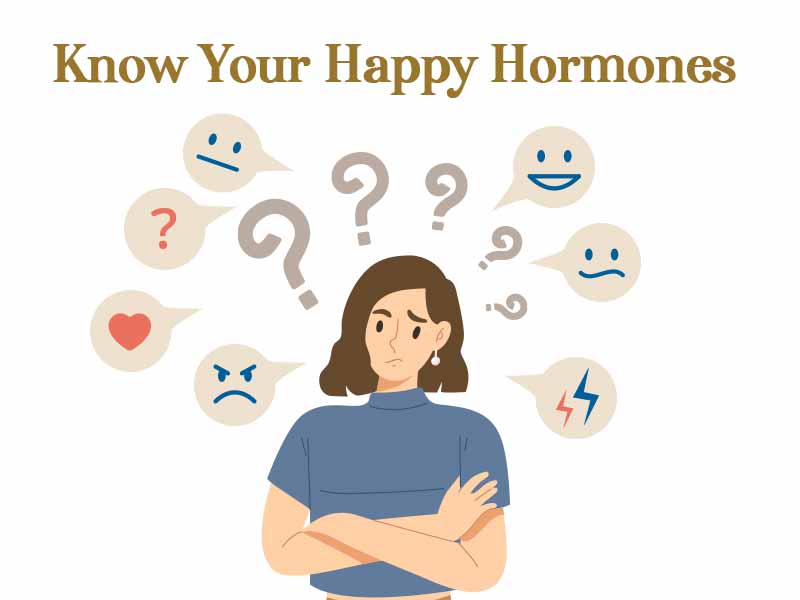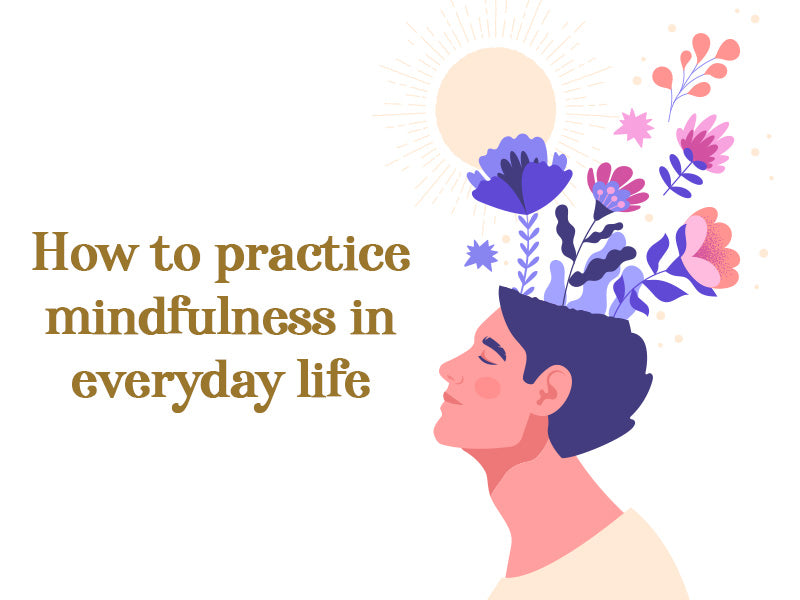‘Be happy and worry less’, right? Perhaps all mantras could be simply summed up like this. Isn’t that what we are trying to do? Finding destinations, exploring new experiences, trying new paths…hoping to get led to a state of fulfilment and some happiness. We all seek it in various ways. But did you know that it's not just a random feeling? - it's science! Inside your brain are four key players responsible for those moments of joy and bliss: dopamine, serotonin, oxytocin, and endorphins.
Dopamine: A.k.a. the "happy hormone," is linked to the rush of exhilaration whenever you do something that meets your needs. Like-ordering stuff, taking a bite of your favourite dessert. In other words, when you treat or gift yourself.
Serotonin: A.k.a. the "feel-good hormone” is what keeps the good vibes flowing. It is the calming influence behind your good moods. It helps you handle stress and keeps your mood on the sunny side. In fact, it is the main class of drugs that is used to treat depression.
Endorphins: Ever heard of "runner's high"? That's endorphins in action – your body's natural mood lifters and pain killers. These hormones provide an incredible sense of euphoria that can even mask pain. Doing cardio helps boost these hormones.
Oxytocin: Often called the "love hormone" or "cuddle hormone," it is responsible for those warm, fuzzy feelings you experience during moments of intimacy, bonding, and affection. Physical touch (hugs, massage, being physically intimate etc.) is what fuels this.
Here’s the cool part: these hormones are totally responsive to our thoughts, activities, and even the foods we take. So, understanding how they work can help you come up with strategies to boost your mood and well-being.

The release of dopamine in our bodies is connected to our ancestors foraging for food. Every time they saw something edible, their brains secreted dopamine which told them to go for it! Back to the present-we get a dopamine signal whenever our brains are able to locate a ‘reward’ in our environment. This is why you keep checking social media account. Each time you see something you like- you get a dopamine hit!
However, a "dopamine high" fades quickly, causing reduced enjoyment of the same rewards over time. This was evident in a study with monkeys where they initially loved getting juice as a reward but soon became indifferent to it, highlighting how our brains can take rewards for granted.
Romantic love is the most relatable example of a dopamine letdown. In the initial phase (newly ‘in love’), you ride the dopamine high, but with time, it wanes, and you may begin to feel bored and unhappy in the relationship.
To overcome this, try taking a trip together! Travel is a fantastic dopamine booster. The excitement of planning and anticipating the journey, exploring new places, and even the simple joys like finding a great breakfast spot can all fill you both with happiness.
In short, dopamine can lead to disappointment and gradual unhappiness as your brain grows accustomed to the same rewards.

All creatures, from amoebas to humans, possess serotonin, linked to feelings of security and having access to resources. Unlike animals, we humans don't constantly battle each other for food or mates but we are still affected by a desire to dominate. We crave respect and want to be heard. This gives us a serotonin boost.
Even if you think you don't care about social status, your serotonin could dip when someone you feel doesn’t deserve it, gets more social recognition/praise than you. Comparisons of yourself with successful peers can also lower serotonin.
To prevent serotonin drops, you need to build healthy self-pride and self-respect. As an exercise for 45 days, go and tell someone about your most recent accomplishment, thus training your brain to feel proud of yourself and worthy.

There is a reason why people ask us to get up and move when we are feeling low and sad, because exercise helps trigger endorphins which make you feel good and in pain.
Like with all the hormones, there is also a point when endorphins drop, even while you are doing something to boost it. To keep boosting it would mean to keep exercising more & more. Of course, it's unwise to push yourself too much.
A safer way to trigger endorphins is through laughter, like at a comedy club or laughter club. Don't abandon exercise; instead, mix it up with varied routines like combining running, strength training, or Zumba for that post-workout high!

Oxytocin helps us bond with family & friends, making us feel loved & secure. It is produced when we hug & touch our loved ones, but this feeling doesn’t linger on too long-which is a good thing! Otherwise, we would start feeling love for every person we meet & trust them, which is definitely not safe!
Of course, there is no harm, and only pleasure in exchanging hugs or kisses with your children or giving your partner a massage. It will strengthen your bond and make both parties feel overjoyed.
All that being said, no one can stay happy all the time, and that is okay. Being mindful of your emotions and their triggers can empower you to deal better in such times.
Boost mindfulness with a daily 15-minute meditation to gain control over your thoughts. As Buddha rightly said, "Happiness hinges solely on your thoughts, not on possessions or identity."
Discover EKAM's aromatherapy range of essential oil-infused candles, pure essential oils, and blends. You can use them to elevate your meditation or self-care rituals or to simply indulge in exquisite fragrances.





